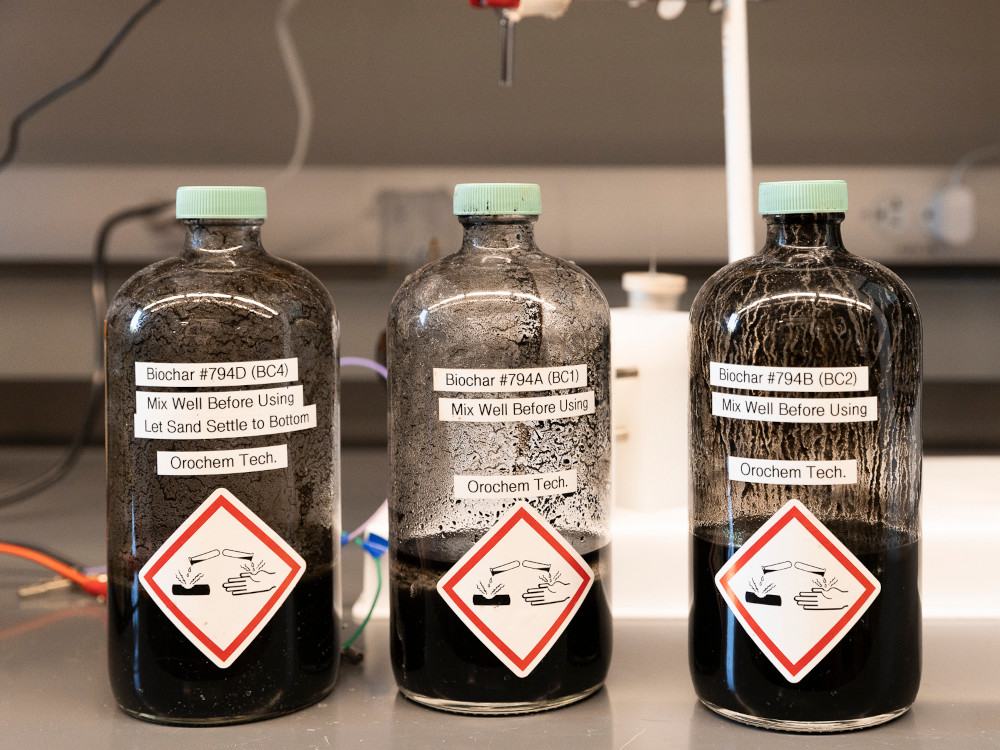As if there was something prophetic about the scene in 1989’s “Back to the Future II.” Doc Brown is looking for organic waste to run the time machine, which undoubtedly requires a lot of energy.
If researchers at the University of Illinois at Chicago have their way, this won’t be science fiction for much longer. Instead, they propose a method that could partially reduce the electricity needed to produce pure hydrogen by adding something called biochar.
Hydrogen is in high demand because it has three times the energy density of gasoline. Unfortunately, the easiest way to produce natural gas does not seem to be a sustainable solution.
Hydrolysis is by no means an optimal method. Apart from effort, high energy input is a major obstacle to economical use. Only a large surplus of energy, which cannot really be desirable, would provide a solution in this case.
However, adding a carbon source to the reaction can greatly reduce the need for electricity. Problem: Until now, coal has been used mainly for this. Additionally, CO2 is released in the process.
Instead, the researchers looked for a readily available source and found sugar pea straw, hemp residue, paper waste, and cow manure. Enriched with sulfuric acid, they produce a type of biochar.
All tested species made the hydrolysis process more efficient. Best results were obtained with cow dung. Electricity demand is reduced by more than 80%. In laboratory testing, a single solar cell providing 0.5 volts and 15 milliamps was sufficient. That means less power than a small AA battery can provide.
There are currently plans to scale up production to obtain significant amounts of hydrogen. One application area has already been identified: agricultural machinery requires large amounts of fuel, so hydrogen is a good option. Also organic waste is available at very low cost to the farmers.

